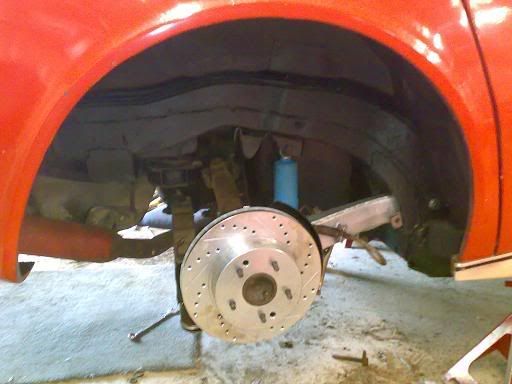Here's the ones I've just put on my current project... No rivets.
There's really no reason for them. The rotor is held in place by the studs, so its not going to spin, then you bolt a wheel onto it, so it's got no-where to go. The rivets are just a pain in the arse to remove and that's about it!
Do make sure you drill them out completely and knock of the cap on the inside too as you really don't want them bouncing around inside your park brake etc.
UNLESS you are trying to be NCRS specific, in which case they are needed.
